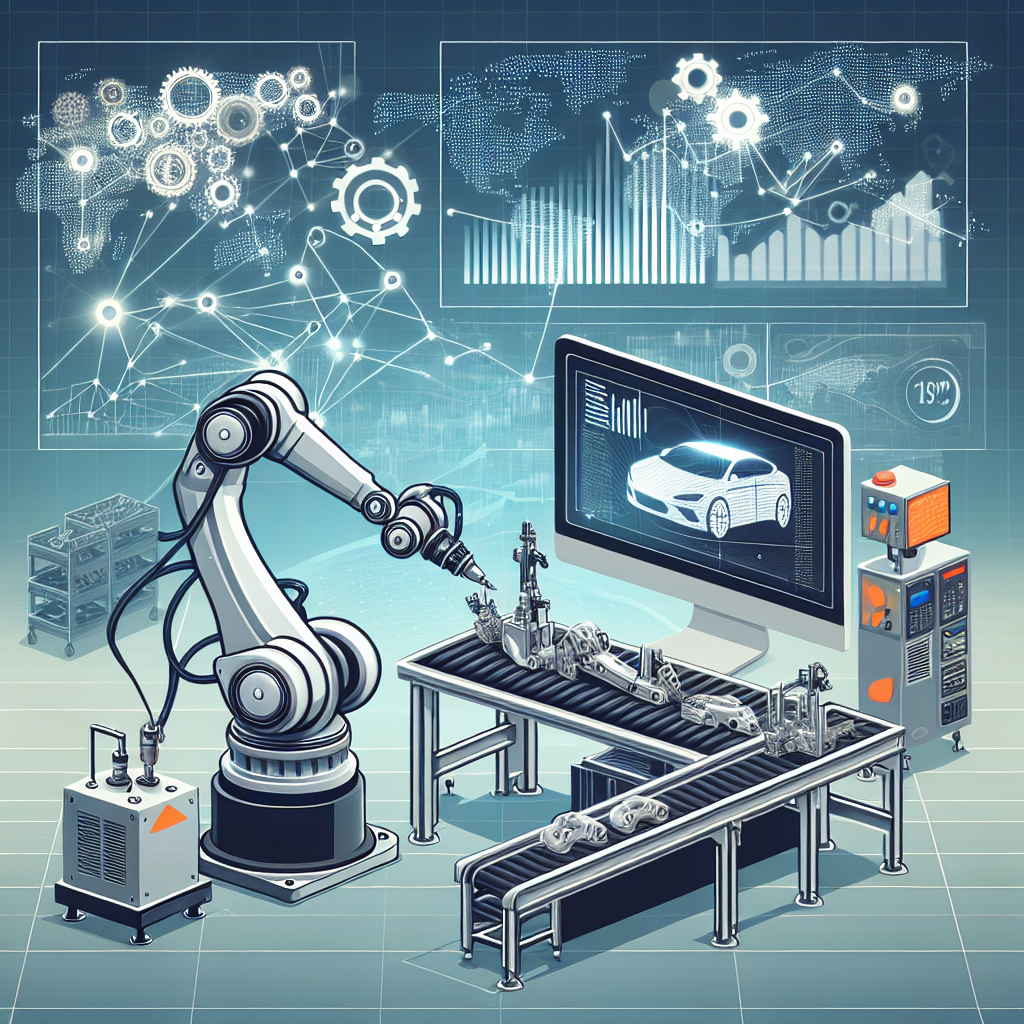Artificial intelligence (AI) and lean manufacturing techniques are two powerful tools that can revolutionize the manufacturing industry. AI, in particular, has the potential to streamline processes, increase efficiency, and improve overall productivity. When combined with lean manufacturing principles, companies can achieve even greater levels of success.
AI in Manufacturing
AI is the simulation of human intelligence processes by machines, especially computer systems. In the manufacturing industry, AI can be used to analyze vast amounts of data, automate repetitive tasks, and make complex decisions. This technology can help manufacturers optimize their production processes, reduce waste, and improve product quality.
One of the key benefits of AI in manufacturing is predictive maintenance. By analyzing data from sensors and equipment, AI can predict when machines are likely to fail and schedule maintenance before a breakdown occurs. This can help companies avoid costly downtime and keep operations running smoothly.
Another area where AI can make a big impact is in quality control. By using machine learning algorithms, manufacturers can detect defects in real-time and make adjustments to prevent them from occurring in the future. This can help companies reduce waste and improve customer satisfaction.
AI can also be used to optimize supply chain management. By analyzing data on supplier performance, inventory levels, and demand forecasts, manufacturers can make better decisions about sourcing, production, and distribution. This can help companies reduce costs, improve lead times, and enhance overall efficiency.
Lean Manufacturing Techniques
Lean manufacturing is a production philosophy that focuses on maximizing value and minimizing waste. The goal of lean manufacturing is to create more value for customers with fewer resources. This approach is based on principles such as continuous improvement, just-in-time production, and eliminating waste.
One of the key principles of lean manufacturing is the concept of kaizen, or continuous improvement. This involves constantly seeking ways to improve processes, reduce waste, and increase efficiency. By implementing kaizen practices, companies can create a culture of innovation and excellence.
Another important principle of lean manufacturing is just-in-time production. This involves producing goods only when they are needed, in the quantity required, and at the right time. By adopting a just-in-time approach, companies can reduce inventory levels, minimize storage costs, and increase responsiveness to customer demand.
Lean manufacturing also emphasizes the importance of eliminating waste. This can include anything that does not add value to the final product, such as overproduction, defects, waiting times, and unnecessary transportation. By identifying and eliminating waste, companies can streamline processes, reduce costs, and improve overall efficiency.
Combining AI and Lean Manufacturing Techniques
When AI is combined with lean manufacturing techniques, companies can achieve even greater levels of efficiency and productivity. AI can help identify opportunities for improvement, optimize processes, and make data-driven decisions. By leveraging the power of AI, companies can take their lean manufacturing efforts to the next level.
For example, AI can be used to analyze production data and identify patterns that may not be immediately apparent to human operators. By using machine learning algorithms, manufacturers can uncover insights that can lead to process improvements and cost savings. This can help companies identify and eliminate waste more effectively.
AI can also help companies optimize their supply chain management practices. By analyzing data on supplier performance, inventory levels, and demand forecasts, AI can help companies make better decisions about sourcing, production, and distribution. This can lead to reduced costs, improved lead times, and enhanced overall efficiency.
Another area where AI can make a big impact is in quality control. By using machine learning algorithms to analyze data from sensors and equipment, AI can detect defects in real-time and make adjustments to prevent them from occurring in the future. This can help companies improve product quality, reduce waste, and enhance customer satisfaction.
FAQs
Q: How can AI help manufacturers improve productivity?
A: AI can help manufacturers improve productivity by analyzing data, automating tasks, and making data-driven decisions. By leveraging the power of AI, companies can optimize processes, reduce waste, and increase efficiency.
Q: What are some common lean manufacturing techniques?
A: Some common lean manufacturing techniques include continuous improvement, just-in-time production, and eliminating waste. By adopting these practices, companies can create more value for customers with fewer resources.
Q: How can companies implement AI and lean manufacturing techniques in their operations?
A: Companies can implement AI and lean manufacturing techniques by investing in technology, training employees, and creating a culture of innovation. By combining these powerful tools, companies can achieve greater levels of success in the manufacturing industry.
In conclusion, AI and lean manufacturing techniques are two powerful tools that can revolutionize the manufacturing industry. By leveraging the power of AI to analyze data, automate tasks, and make data-driven decisions, companies can achieve greater levels of efficiency and productivity. When combined with lean manufacturing principles such as continuous improvement, just-in-time production, and eliminating waste, companies can create more value for customers with fewer resources. By adopting these practices, companies can streamline processes, reduce costs, and improve overall efficiency.

